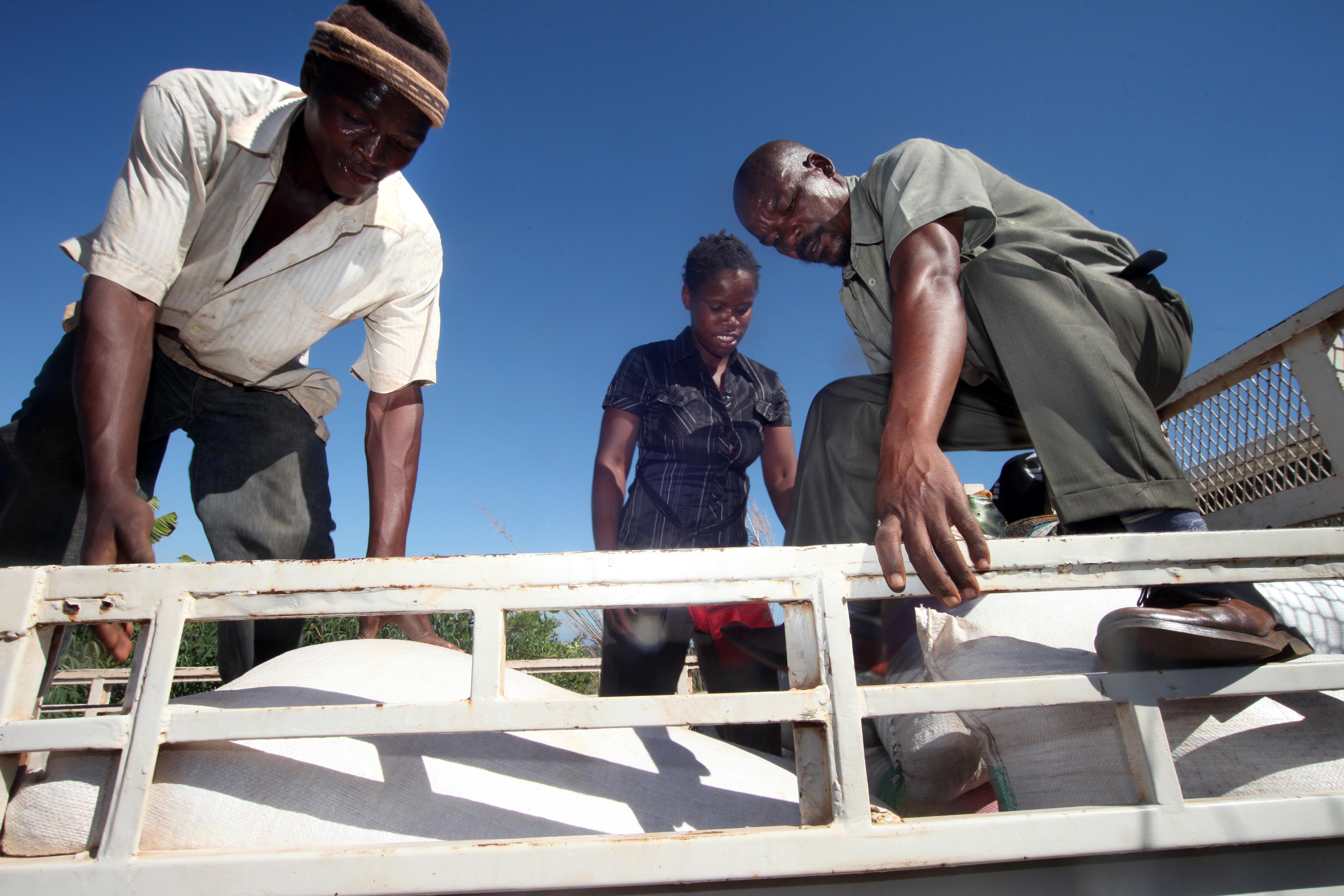Helping Mozambican farmers develop bankable business plans

The Government of Mozambique is making a big push to help family farmers move beyond subsistence farming.
One way is by improving their access to finance so they can invest and grow their businesses.
In May, FAO trained project coordinators and technical staff from the World Bank’s Mozambique office and Eduardo Mondlane University on Rural Invest – a tool developed by FAO to help communities and farmers prepare bankable business plans.
The training took place in Nampula, Mozambique, as part of a World Bank-financed agriculture and natural resources project known as SUSTENTA.
One of SUSTENTA’s core components is developing value chains, with a focus on financing small-scale agricultural investments.
“The Government is keen for financing institutions and commercial banks to go deeper into rural areas and disburse smaller loans,” said Rouja Johnstone, an FAO agribusiness officer.
“Rural Invest was selected as the most appropriate tool to help the SUSTENTA project team assess the financial viability, risks and overall sustainability of the proposed business investments.”
Building investment capacity
FAO developed the Rural Invest methodology and toolkit over the years, starting nearly 20 years ago. It has since translated the software into nine languages and introduced the toolkit across the globe.
The Rural Invest approach is participatory, interactive, bottom-up and decentralized. It’s also a process that takes time.
“There’s often the perception that putting together a business plan can be done in one or two meetings, but the reality is that it takes a series of meetings and discussions to allow people to build the vision of their businesses,” Johnstone said.
Dino Francescutti, an FAO senior economist, added that it’s not just about using the tool to generate cash flows.
“Rural Invest is a whole process that starts with proper dialogue with the farmers,” he said. “It’s about coming up with good ideas together, analysing the technical and financial feasibility of those ideas and making sure the farmers know what they’re getting into. It’s also about building capacity to monitor and assess the results of those investments.”
“Both the participatory and the financial aspects of Rural Invest are important,” he said.
A flexible tool
The Rural Invest tool is flexible, designed to be used for different types of small- and medium-scale investments across different sectors.
This includes income-generating projects to improve rural livelihoods, as well as non-income-generating projects, such as for better roads and drinking water supplies.
In Mozambique, the Rural Invest training analysed various proposed business plans – from producing fruits and vegetables to supply urban markets to investing in mechanization for higher maize and beans yields or processing equipment to add value.
Attracting private sector investment
FAO will soon conduct a second round of Rural Invest training in Mozambique for the new service providers recruited by the World Bank to develop over 70 small-scale business plans.
Given the growing focus on private sector agricultural investment in Mozambique, commercial banks are also interested in learning more about Rural Invest, said Johnstone.
Immediately following the May training in Nampula, FAO organized a brief presentation in Maputo, the capital, on both Rural Invest and an e-voucher initiative for agricultural inputs.
The event drew representatives from the Ministry of Agriculture and Food Security, commercial banks, rural finance institutions, national farmer organizations, the European Union and other resource partners.
“Commercial banks want to extend their portfolio and reach a new clientele,” Johnstone said, adding that FAO will conduct a one-day Rural Invest workshop for Mozambique’s commercial finance sector later this year.
“Rural Invest allows them to assess risks in this new rural portfolio and be a bit braver in granting medium-term loans.”
Click here for more information on the Rural Invest website and brochure.
Photo credit: © FAO/Paballo Thekiso
